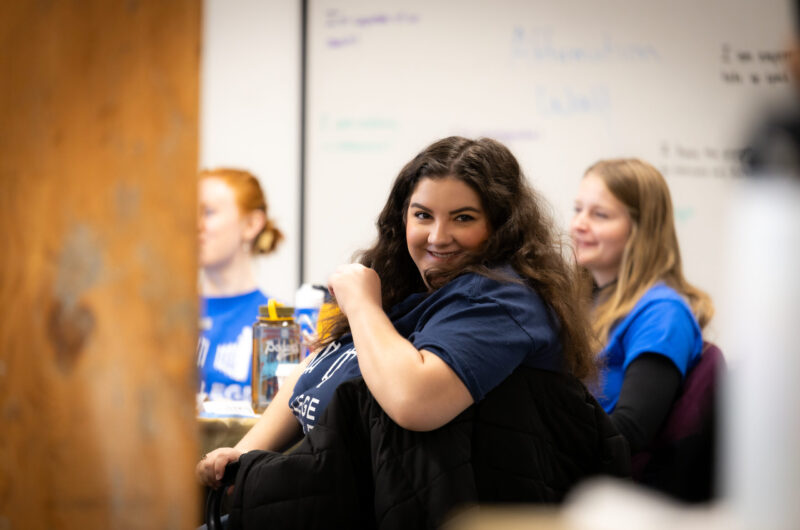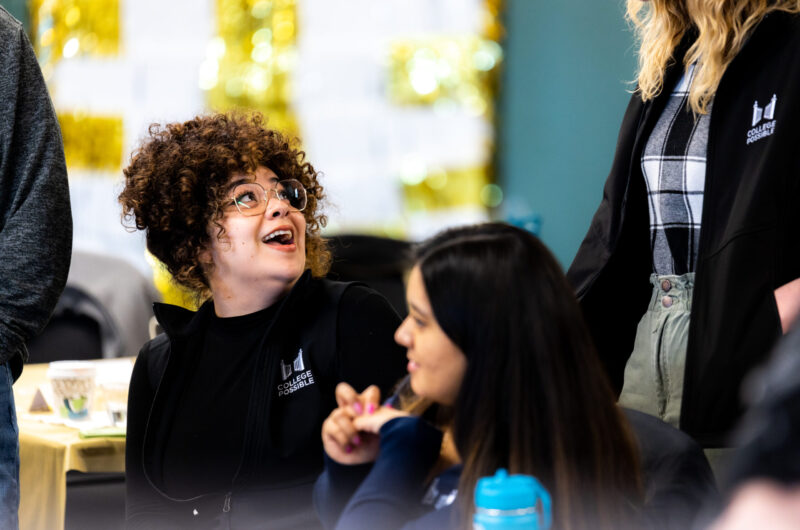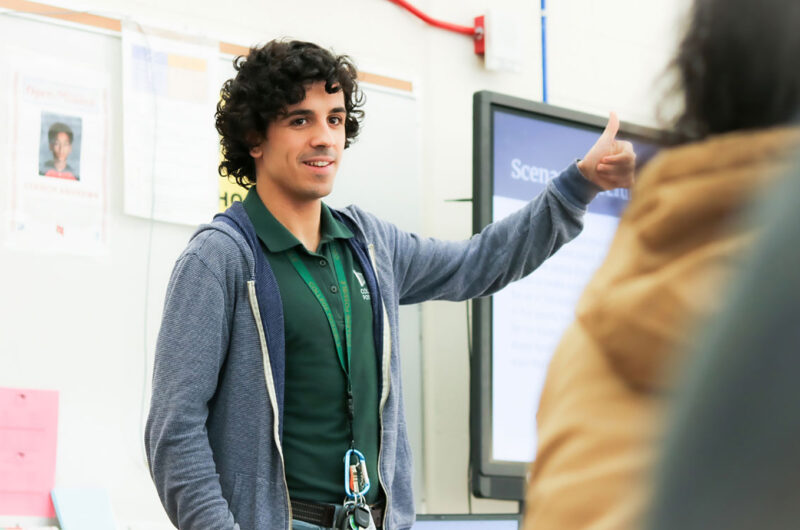A Q&A with Nadya Streicher, College Possible success coach at the University of Cincinnati.
 The outbreak of COVID-19 has forced many institutions to transition to remote and online instruction for the remainder of the academic year. For College Possible success coaches and Catalyze partners, this has also meant shifting coaching and student support from in person to online.
The outbreak of COVID-19 has forced many institutions to transition to remote and online instruction for the remainder of the academic year. For College Possible success coaches and Catalyze partners, this has also meant shifting coaching and student support from in person to online.
The COVID-19 pandemic has been especially challenging for students from low-income and first-generation backgrounds due to housing, food and other financial insecurities[1]. With information about COVID-19 rapidly evolving, College Possible success coaches are utilizing their training in narrative-based coaching to check in with students and ensure they feel supported throughout this uncertain time.
What inspired you to become a College Possible success coach and AmeriCorps member?
My mom arrived in Wisconsin from Guyana, South America when she was just 17. She often talked about how little she knew about college culture and was often overlooked or even taken advantage of. Her story resonated so strongly with me as I moved through my own bachelor’s program. The assumptions people have of students is seen everywhere. Working with College Possible has allowed me to help students navigate our campus and learn to advocate for themselves.
How have you supported students throughout their transition to remote and online instruction?
I want the students to feel just as cared for as they did when we were on campus. I am flexible and meet them where they are at via video chat, emailing, phone call or texting. I send emails outlining ways to take care of yourself. I also share about my personal quarantine. Finally, I ask the hard-hitting questions about housing and finance that students may be more apprehensive to bring up themselves.
What has been the biggest challenge for both yourself and your students during the COVID-19 outbreak so far?
Restlessness and motivation. I often joke that I feel like I am on an episode of Black Mirror. It is so [difficult] to remain focused on your calculus course when so many lives are at risk outside your door. It also removes a lot of the community aspect of college. While the team is still present, it takes more energy to interact.
How have your supporters on campus and at College Possible helped you remain optimistic and keep students engaged throughout this uncertain time?
I am so grateful for my College Possible team. A few members of our team have become each other’s pen pals, writing letters about our lives and things that make us happy. Having a community to share bright spots has been so crucial to me.
What do you hope to pursue and accomplish following your service with AmeriCorps and College Possible?
When I first took this role, I had two passions: equitable higher education and patient centered health care. I thought those two were very opposite movements. However, as I finish my term of service, I have learned that individuals from diverse, low income backgrounds just want to understand and be understood. I plan to receive my BS in nursing and hopefully create or work with nonprofits to increase medical literacy. In these large systems, we need to ensure no information is lost due to a simple misinterpretation.
[1] Goldrick-Rab, S. (2020, March 16). Supporting Students During COVID-19: The #RealCollege Guide. The Hope Center for College, Community, and Justice.



